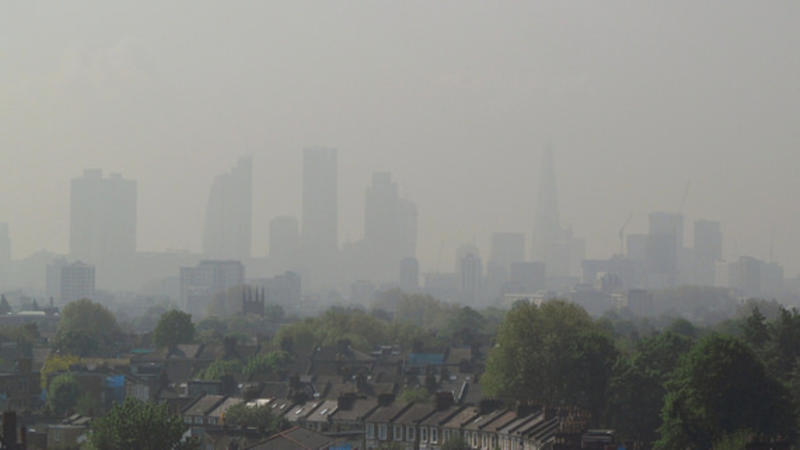
Air pollution in London. [DAVID HOLT/Flickr]
On the occasion of the World Asthma Day (2 May), asthma patients heated up the debate on indoor and outdoor air quality, emphasising that half of EU member states ignore their 2030 commitments.
In December 2016, the EU adopted the new National Emissions Ceilings (NEC) Directive, setting stricter limits on the five main pollutants in Europe. It is estimated that these measures will halve the negative health impacts of air pollution, such as respiratory diseases and premature death, by 2030.
According to the World Health Organisation (WHO), approximately 30 million Europeans have asthma, while globally the number reaches some 235 million.
In addition, the total cost of asthma in Europe is €17.7 billion per year, and productivity loss due to patients’ poor control of their asthma is estimated at €9.8 billion per year.
“Asthma and allergy are the most common chronic diseases in children and the leading cause of school absences, emergency visits and hospitalisations in Europe,” according to the European Federation of Allergy and Airways Diseases Patients’ Associations (EFA).
EU countries violate air quality rules
For EFA President Mikaela Odemyr, the rise of allergies, asthma and chronic obstructive pulmonary disease (COPD) is intimately linked to the quality of the air people breath.
“We have been advocating for stronger air quality legislation on a European level with some satisfactory results like stricter pollution levels by 2030 for more pollutants, […] but local and national authorities should prioritise air quality compliance in their policies and respect the levels set,” she said.
She added, though, that many EU member states continue to ignore EU rules on air quality.
“Bulgaria has already been found guilty by the Court of Justice of the EU for systematically and constantly exceeding EU norms on fine particulate matter over its whole territory, and Poland is currently facing a case in front of the Court,” the activist emphasised.
Indoor air quality “problematic”
Outdoor air pollution is has a direct in peoples’ health. However, people spend up to 90% of their day indoors, at home, work or school. Thus, indoor air quality is also a factor worthy of consideration.
On an EU level, there is no legislation specifically covering indoor air quality. The only legislative initiative was the Commission’s proposal to amend the Energy Performance of Buildings Directive, focusing on increased inspections and reports for heating and air-conditioning systems.
mHealth and asthma
Asthma is considered a major chronic disease, which cannot be cured. However, proper management can help sufferers enjoy a good quality of life.
In an effort to improve patients’ everyday life and increase the self-management of chronic diseases, the Commission has turned to mHealth solutions.
One of them is the myAirCoach project, a three-year project funded by the European Commission’s Horizon 2020 programme. The aim of the project is to build a mobile application that, connected to a multi-sensor based inhaler, will help patients take full control of their disease.
Its main objective is to measure symptoms in real-time as well as provide patients and healthcare professionals with information about air quality around the patient.
A recent study carried out by the myAirCoach Advisory Patient Forum found that patients and healthcare professionals increasingly back mobile health tools for the self-management of asthma.
According to the findings, patients are most frequently used to monitoring and collecting data, while healthcare professionals focus on a system for alerting patients to deteriorations in their asthma control and advising them when to seek medical attention.

